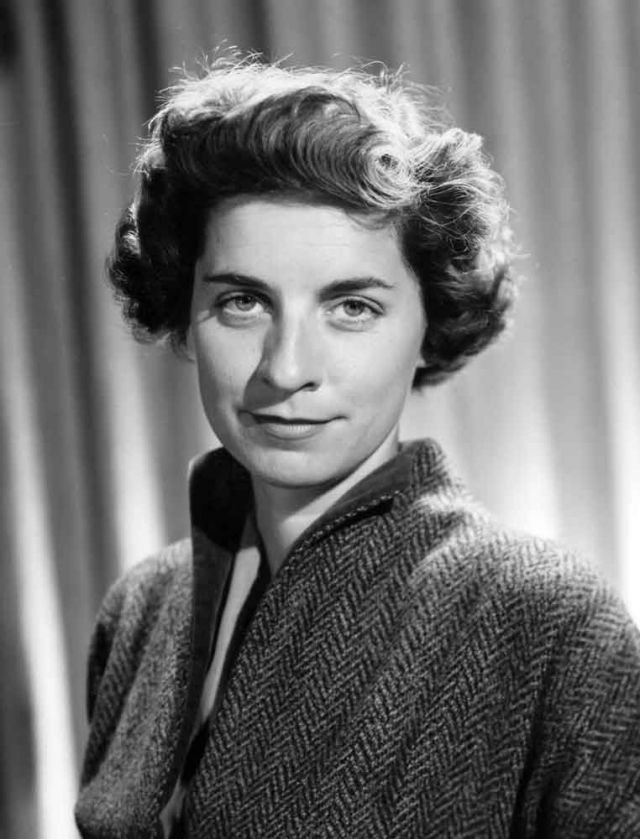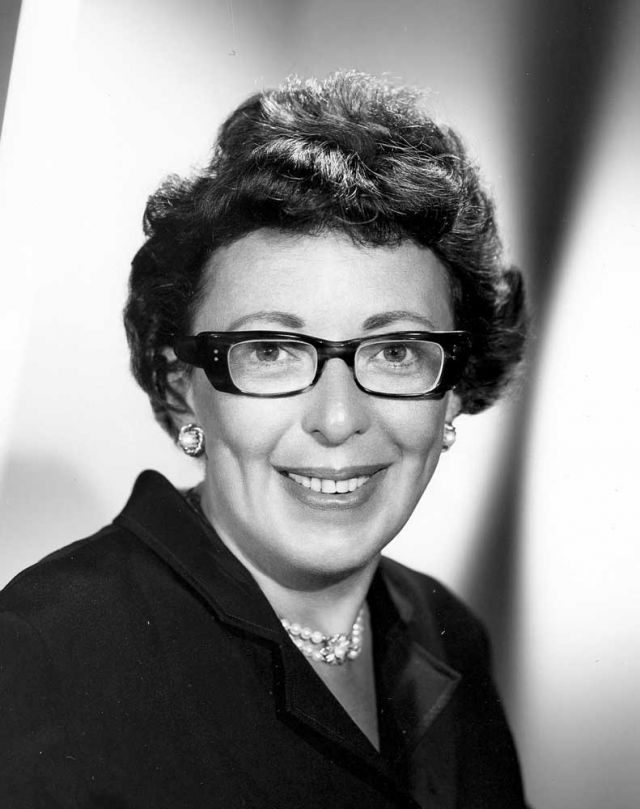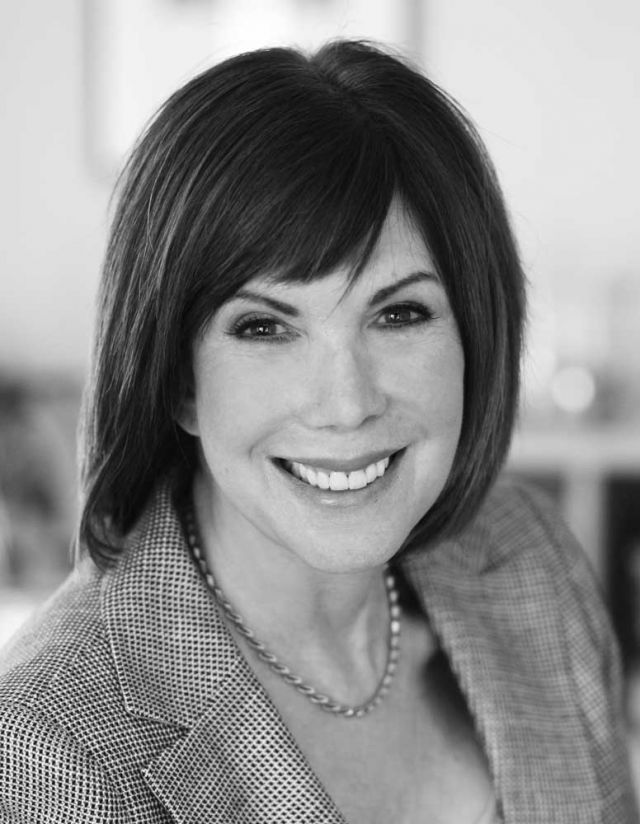One made us love Lucy, another brought the funny to Carol Burnett, and a third was the first female TV exec in history. Meet the broads who fought their way into the early days of broadcasting.
When The Mary Tyler Moore Show presented a single (and happy) workin’ urban gal in the early ’70s, it was considered a trailblazer—one of the rare television shows that portrayed a modern woman without being patronizing. TV has come a long way since then, baby. As ladies’ purchasing power has skyrocketed (60 percent in the past three decades), advertisers have perked up their ears, and networks have scrambled to present us with more sitcoms and dramas that focus on female characters. Today it even seems that programs featuring women have taken over the airwaves. Two Broke Girls, Whitney, Pan Am, New Girl, and Up All Night are in the recent barrage of female-friendly prime-time shows.
With so many women on the small screen, it’s hard to believe that not that long ago, they were seldom included behind the scenes. Those who tried to make inroads were laughed out of producers’ offices for wanting to write comedy scripts, not to mention forced to go without bathrooms because the executive lounge was for men only. Here, we tell the stories of three women who worked in the trenches during the early days of the boob tube. These ladies pushed their way to the top at major networks, craftily paired up with male partners to get their scripts read, and won jobs on all-male writing teams. We and our DVRs will forever be in their debt.
Don’t be ashamed if the name Madelyn Pugh (1921–2011) doesn’t ring any bells. Most people aren’t familiar with the legendary TV writer, even though she helped create the most enduring show of all time. Women were a rare sight in writers’ rooms during television’s infancy in the 1950s, but Pugh not only sat at the head of the table during I Love Lucy production meetings, she’s also partly responsible for Lucy’s becoming a star at all. She and collaborator Bob Carroll, Jr.—with whom she worked for five decades—helped Lucille Ball develop her radio show into a vaudeville act and then a TV pilot, and were involved in every episode of her 1951–1957 classic sitcom. The duo brought us Ball stomping grapes, testing chocolates, lighting her nose on fire, and swigging Vitameatavegamin.
Ball’s gonzo physical comedy was so integral to the show’s success that Pugh wrote the stage directions in all-capital letters so big that Ball called them “the black stuff.” Pugh and Carroll were responsible for every move of what looked like ad-libbed craziness. Pugh even became Ball’s unpaid stunt tester—no small feat on the ultra-physical comedy, which often required her to do things like ride a unicycle before Ball did them. “We’d wrap Madelyn in rugs and strap her in swivel chairs and hang her out of windows,” Carroll said in a 1990 interview, “and she came through nicely.” Sometimes, despite copious pre-testing, the star still wanted no part of the shenanigans the writing duo had dreamed up. When Ball saw a cow on the set that she was supposed to milk in a scene, she turned to Pugh and cracked, “You wrote it, you milk it.”
Pugh got her start in the entertainment biz at CBS Radio, where she was the second female staffer ever—she snagged a job as a writer during World War II, when there weren’t enough men around to hire. “No one actually wanted to hire women in 1944,” she wrote in her 2005 memoir, Laughing With Lucy, but with the men at war, “what else was there?” She and Carroll were first paired up at CBS on comedian Steve Allen’s show, but when they heard Ball was going to star in a radio program called My Favorite Husband, they wanted to write it so badly that they paid Allen to write his own material for a week so they could submit a script to Ball.
They got the job, forging what would be a decades-long relationship with each other and the future superstar. It wasn’t always an easy alliance; Pugh came up against Ball’s fiery temperament on more than one occasion. “She would get impatient when things weren’t working or impatient that people were phony or weren’t doing their jobs,” Pugh has said. “She was usually right, but she scared everybody. I finally got over being frightened, and I could talk to her.” Pugh and Carroll helped Ball segue into television and went on to create an estimated 400 episodes of TV with the comedic diva. The two became Ball’s secret to success—writing for her follow-up series in the ’60s, ’70s, and ’80s—and also created the lady-centric series The Mothers-In-Law and Alice. “Madelyn was such a class act,” Ball’s daughter, Lucie Arnaz, told the Los Angeles Times when Pugh died. “She was a very private person, very soft-spoken, genteel, feminine—all those lovely words you associate with great ladies. And yet she had the ability to write this wacky, insane comedy for my mother.”

“No one actually wanted to hire women in 1944.”
Madelyn Pugh
In 1973, CBS named Winant vice president, making her the first female exec at that network, but also the first female TV executive in history. (CBS didn’t offer her any bump in pay for the promotion, but she successfully argued for “a little more money.”) While CBS may have been ready to welcome a lady vice president into its ranks ideologically, it wasn’t quite prepared architecturally. Winant was the first and only woman to use the executive restroom, which for years had been a men’s-only affair—it didn’t even have a lock. For a year and a half, she took the elevator down to the regular ladies’ room, but that grew tiresome. Then she devised a clever idea. “I figured out that if I took my shoes off and left them outside the door, these guys…would know that I was in the bathroom,” she said in an interview with the Archive of American Television. “They got the message fairly quickly.” Still, CBS didn’t immediately install a ladies’ washroom; with just one female exec at the network, there wasn’t any need. “I was always the only woman,” Winant has said, “for years and years and years.”
After leaving CBS, Winant remained a boss lady, working as a VP at the Children’s Television Workshop (the producers of Sesame Street) and as senior vice president of miniseries at NBC, lending her genius to the series Shogun. “She was an extremely driven woman,” says her son, Bruce. “She was astronomically smart, I mean crazy-smart. She broke so many barriers.” Of course, breaking barriers took time. Winant was so dedicated to her job that many nights after work, she’d scour the theaters on Melrose Avenue for talent. She kept a pile of scripts by her bed, had a special phone line for work installed in her bedroom, and kept the TV on during all her waking hours spent at home. “At the time it was difficult for us, because it was really about her work,” Bruce says. “I understand that as a woman at that time, it was tough. She did what she had to.”

“I knew eventually someone would want a cup of coffee and I would get it for them.”
Ethel Winant
Parent and Solms had started doing improv together when they were classmates at NYU and realized they were both superfans of the comedy duo Nichols and May. They started out essentially stalking anyone in New York who was involved in the comedy business—producers, comedians, and writers. “We would sit in people’s lobbies and say to them when they came home, ‘We can write for you!’” That didn’t work so well, but the persistent team did eventually write a comedy album that Carol Burnett heard; as a result, her producers hired them on a seven-week contract. They stayed for five years, winning an Emmy Award and crafting long-running gags for Burnett, like the soap-opera send-up “As the Stomach Turns.” “Working for Carol was like getting our master’s degree in comedy,” Parent has said. “We had no TV experience but we learned—from the best.”
Before landing her gig on the The Carol Burnett Show, Parent had been turned down for a writing job on The Smothers Brothers; they told her they didn’t want a woman on staff. The male to female ratio wasn’t much better at Carol Burnett—she was the only female writer. “CBS used to drag me out for publicity, saying, ‘See? We have a woman,’ like I was this totally rare creature,” she has said. “I felt terrific. Later, I realized that I should not be thrilled to be the only woman on the staff.” Parent told Mollie Gregory, author of Women Who Run the Show,“There were 10 variety shows on the air and approximately 10 writers on each show. I was the only woman. Out of a hundred.” Still, she admits now, “It was fun being the only woman because I felt so successful. I got a lot of attention for it.”

“I wrote what I felt. I never stopped doing that.”
Gail Parent
Parent and Solms also wrote a few episodes of another pioneering woman-centric program, The Mary Tyler Moore Show. It was a dream come true for Parent. “Here was something that really dealt with women,” she says. “Suddenly there are episodes about being a bridesmaid and how funny it can be. No one had done that. I loved it. It was a topic that you could get into, as a woman. Watching it was so relatable.” After Mary Tyler Moore, Parent and Solms parted ways, and Parent’s first solo assignment was an episode of Rhoda. “It was scary,” she recalls—not only did she have to make up her own jokes; she had to painstakingly type them using the hunt-and-peck method. (While she was writing for Rhoda, she also found success with the 1974 surprise best-seller Sheila Levine Is Dead and Living in New York). She later helped create Mary Hartman, Mary Hartman, a ’70s prime-time comedy series that parodied soap operas and is now a cult fave. Parent also wrote more than a dozen episodes of The Golden Girls, where she was, again, the only female writer. “It’s insane,” she says. “They allowed one of you, period. Even on shows about women.” Parent, who’s since penned novels, screenplays, and more sitcoms, says writing for women “sort of became my thing. But it was just because I wrote what I felt. I never stopped doing that.”
Parent’s mom once advised her, “Try not to be so funny—men would rather be romantic on a date than laughing all night,” but luckily for TV viewers, her humor couldn’t be tamped down. That wit—along with creativity, smarts, and old-school chutzpah—was what helped Parent, Winant, and Pugh change the face of TV and America’s perception of the female experience. They may not have stood in the limelight, but they still deserve a round of applause.
 This article originally appeared in the print version of our February/March 2012 issue. Subscribe here.
This article originally appeared in the print version of our February/March 2012 issue. Subscribe here.

